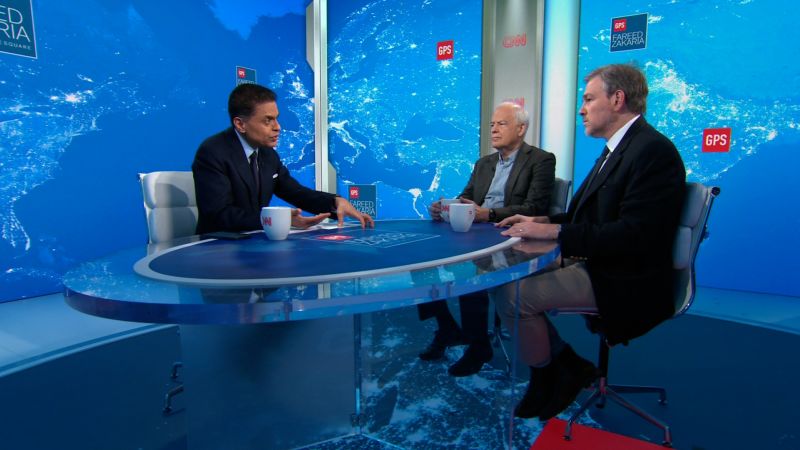In a discussion with Fareed Zakaria, Columbia University professor Bruce Robbins and New York Times columnist Bret Stephens offer contrasting opinions on the debate surrounding campus protests and free speech. The issue in question is whether Columbia University should have involved the police in arresting pro-Palestinian protesters who disrupted a speech by former IDF soldier Hen Mazzig. Robbins argues that the university should not have resorted to police intervention, as it would have exacerbated the situation and potentially violated the protestors’ rights. He believes that allowing for dissent and protest is crucial to fostering an environment of free expression and open dialogue on college campuses. However, Stephens maintains that the university had a responsibility to protect the rights of the speaker and allow for the event to proceed without disruption. He argues that the protesters’ actions were a violation of free speech and should have been met with consequences.
Robbins emphasizes the importance of distinguishing between speech that is merely offensive and that which incites violence or hatred. He argues that the protesters were expressing their legitimate grievances and should not have been silenced through police intervention. Robbins believes that universities have a duty to uphold the values of free speech and intellectual diversity, even if it means tolerating uncomfortable or controversial opinions. On the other hand, Stephens contends that there are limits to free speech, particularly when it comes to actions that disrupt the rights of others to express their views. He argues that the protesters crossed a line by preventing Mazzig from speaking and denying the audience the opportunity to engage with his ideas.
The debate over campus protests and free speech is reflective of broader societal tensions surrounding political polarization, identity politics, and the role of universities in fostering intellectual exchange. Robbins argues that universities should serve as spaces for rigorous debate and critical engagement with diverse perspectives, even if it means confronting uncomfortable truths or challenging prevailing ideologies. He believes that shutting down dissent undermines the very principles of free speech that are essential to a democratic society. In contrast, Stephens maintains that universities have a responsibility to protect the rights of all individuals on campus, including speakers who may hold controversial or unpopular views. He argues that allowing for disruptions of events sets a dangerous precedent for the stifling of free expression.
The differing perspectives of Robbins and Stephens on the Columbia University protests highlight the complexities of balancing competing interests in a diverse and pluralistic society. While both acknowledge the importance of free speech and open dialogue, they differ in their approach to handling instances of protest and dissent on college campuses. Robbins advocates for a more tolerant and inclusive approach that prioritizes the rights of marginalized groups to voice their grievances and challenge dominant narratives. He argues that censoring dissenting voices only serves to perpetuate inequality and suppress alternative perspectives. In contrast, Stephens takes a more pragmatic stance, emphasizing the need to enforce boundaries on speech that crosses into harmful or disruptive behavior. He argues that allowing for disruptions of events undermines the university’s mission to promote intellectual exchange and diversity of thought.
The debate over the Columbia University protests raises broader questions about the limits of free speech in a democracy and the responsibilities of institutions to uphold the rights of all individuals. Robbins and Stephens offer contrasting perspectives on how best to navigate the tensions between protecting free expression and maintaining order on college campuses. While Robbins argues for a more permissive approach that prioritizes the rights of protesters to voice their grievances, Stephens advocates for a more restrictive stance that emphasizes the need to enforce rules and regulations to ensure that all voices are heard. Ultimately, the debate over campus protests and free speech serves as a reminder of the complex and challenging nature of balancing competing interests in a diverse and rapidly changing society. As universities continue to grapple with these issues, it will be essential to find ways to foster a culture of open dialogue and intellectual exchange while also ensuring the safety and well-being of all individuals on campus.













